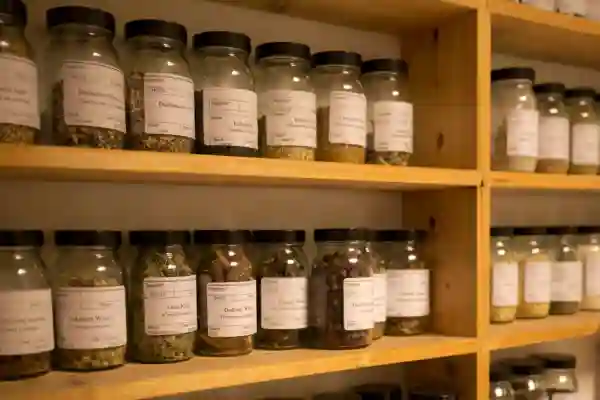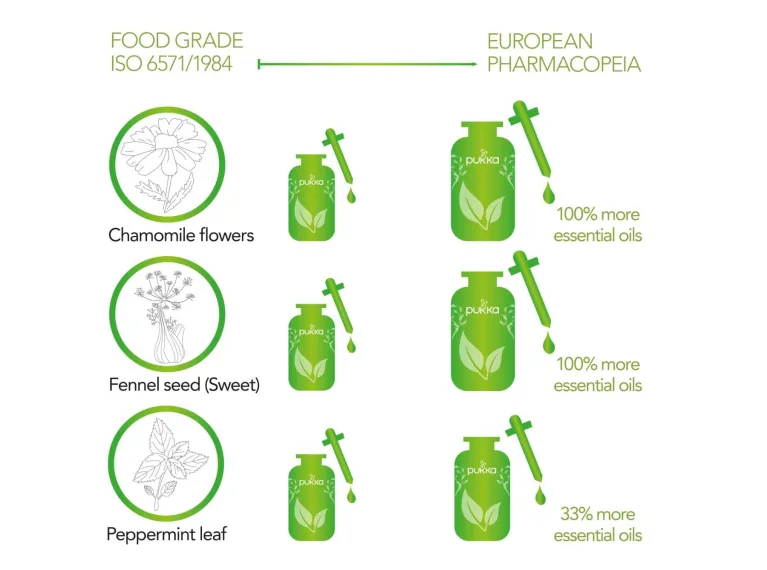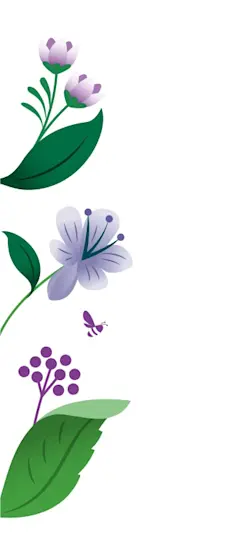

Why use the highest grade and quality of herbs?
The quality spectrum
Herbal teas vary greatly in quality – they might all contain actual herbs, but the full make up of each herb, such as the essential oil content, may be lacking. As a result, the tea may not be as powerful (or tasty) as it could be; it might be completely ineffective, with no nutritional value at all.
One reason for the difference is down to the long road herbs can take from being grown to reaching you. Herbs need to be produced with care from the start, but standards vary enormously around the world. For example, overly harsh drying can rob the herb of its best qualities; too little can leave moisture causing mould to grow. Herbs are also graded according to their quality, reflecting the amount of extra care that go into assuring standards
"For us, quality has always started in the field at the beginning of the value chain. Each herb is unique with its own set of challenges and opportunities. The Sourcing & Quality teams invest a lot of time in visiting our suppliers and seeing the growers 'in the field'."- Sebastian Pole, Master Herbsmith and Pukka co-founder.
Herbs are also graded according to their quality, reflecting the amount of extra care that go into assuring standards.



What is a pharmacopoeial standard?
The highest standards available. A pharmacopoeia is a major official reference text containing a collection of standards to assure the quality of the medicines recommended by a healthcare professional.
How can herbs meet pharmacopoeial standards?
1. Verify the species identity using specialist equipment.
2. Check the quality of the species to ensure the right level of important constituents (e.g. essential oils).
3. Check the herb to ensure it complies with the strictest standards of purity.
We use pharmacopoeial-level standards to inform our herb quality testing where it is both relevant and feasible. “We use over 80 key herbal ingredients in our supplements range and test every batch to ensure it gets the Pukka seal of approval. We're also proud to say that we taste each and every blend of tea to ensure the best possible quality and flavour.” Barry Moore, Pukka's Quality Manager .
Pukka uses organic, fair, highest quality herbs
All of our herbs are grown organically and harvested sustainably from the plant’s favoured habitat to ensure maximum potency. Fair sourcing standards are ensured through Fair for Life certification. We then apply pharmacopoeial standards to our rigorous quality control standards. Our herbal creations are also free from synthetic colour, artificial flavourings and additives. We’re proud to have world-leading experts and herbal practitioners in our team to deliver and to monitor quality standards in our Pukka Herbal Laboratory. This traditional wisdom is combined with scientific research to lovingly create each unique herbal blend, bringing you the very best of nature’s power.
Pukka – your guarantee of the best herb quality
So, the next time you pick up a Pukka tea, you can be sure that every detail has been blended expertly with the very best quality nature offers. Nothing lost. Nothing substituted. Nothing unnatural. That’s the way it’s always been, and it’s the way it will always be. You have our Pukka word.

Author: Marion Mackonochie
Senior Herbal Specialist
Marion is Senior Herbal Specialist at Pukka and a practising medical herbalist dedicated to furthering herbal knowledge and understanding. Degrees in pharmacology (UCL) and herbal medicine and a masters degree in plant chemistry and medicinal natural products (UCL) mean she is well placed to help plan Pukka’s extensive programme of herbal research, as well as advising across Pukka on herb benefits. She has worked on the Journal of Herbal Medicine since its launch in 2011 and is currently Associate Editor.
Qualifications
B.Sc. qualified in herbal medicine (Middlesex Uni, 2009), M.Sc. (mCPP) qualified in pharmacology & physiology (UCL, 2002), MSc medicinal natural products and phytochemistry (UCL, 2016)
Years of experience
12 years in medical herbalism
Professional registrations
Member of College of Practitioners of Phytotherapy
